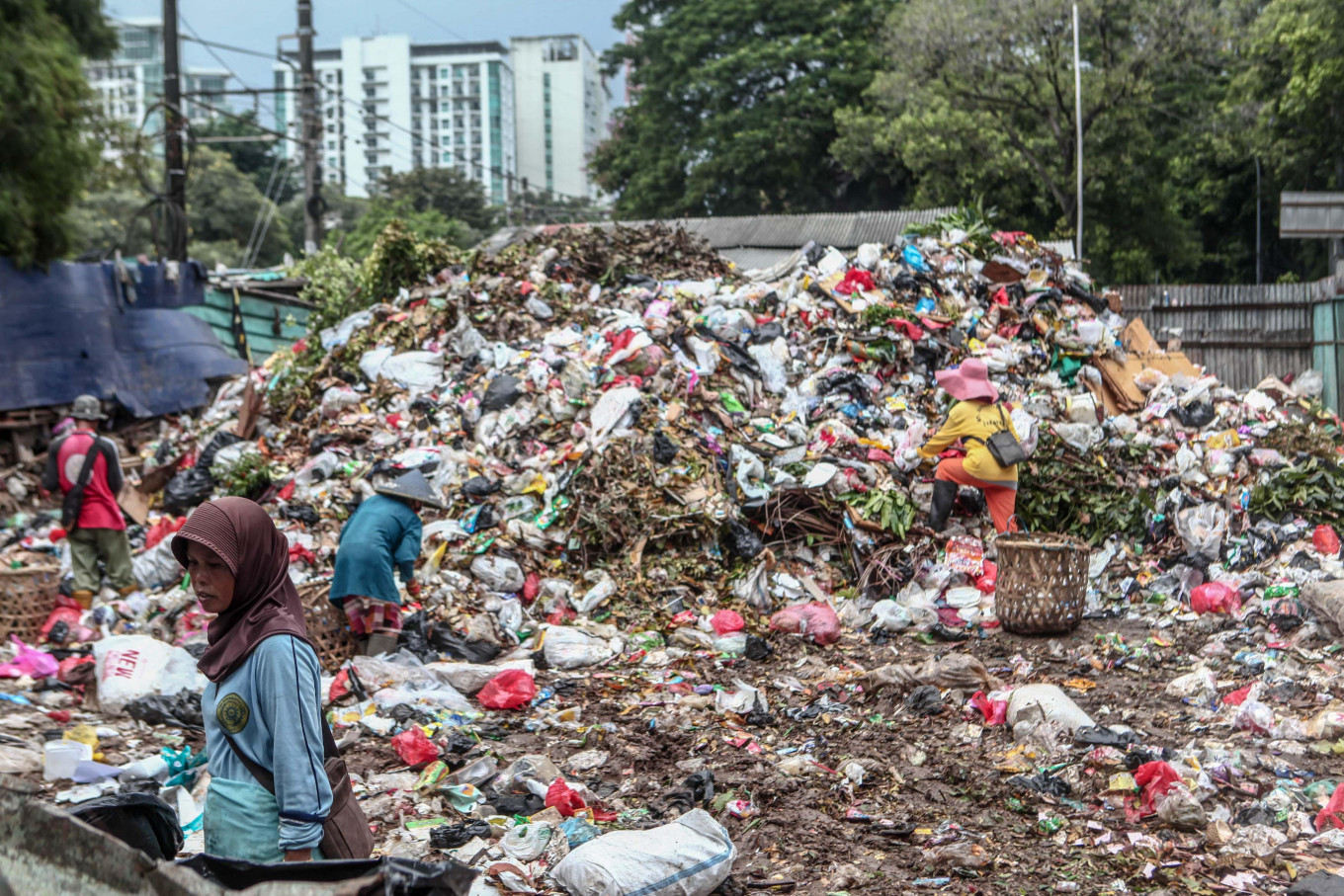Popular Reads
Top Results
Can't find what you're looking for?
View all search resultsPopular Reads
Top Results
Can't find what you're looking for?
View all search resultsCOVID-19: Jakarta’s trash output decreases as residents stay at home
Jakarta Environment Agency head Andono Warih has said that the amount of trash sent to the Bantar Gebang landfill in Bekasi, West Java, has decreased from 1,500 tons per day to around 620 tons per day.
Change text size
Gift Premium Articles
to Anyone
J
akarta’s daily trash output has decreased by over 40 percent ever since local residents began working and studying from home to curb the spread of COVID-19, the city’s environment agency announced Thursday.
In a statement on Thursday, Jakarta Environment Agency head Andono Warih said the amount of trash sent to the Bantar Gebang landfill in Bekasi, West Java, had decreased to around 620 tons daily in the two weeks since the stay-at-home instruction was announced on March 16.
According to a Bekasi Environment Agency report in January, the Bantar Gebang landfill received approximately 1,500 tons of trash each day.
“The policy of working, studying and worshipping at home has caused a reduction in waste, especially from commercial sources such as hotels, malls, restaurants and tourist destinations," Andono said.
He advised residents to keep reducing, sorting and recycling waste while in self-quarantine.
Furthermore, he encouraged residents to practice the eco-friendly waste management.
“We have to know and be aware of what we are consuming. If it produces excess waste, we should choose other options,” he said.










